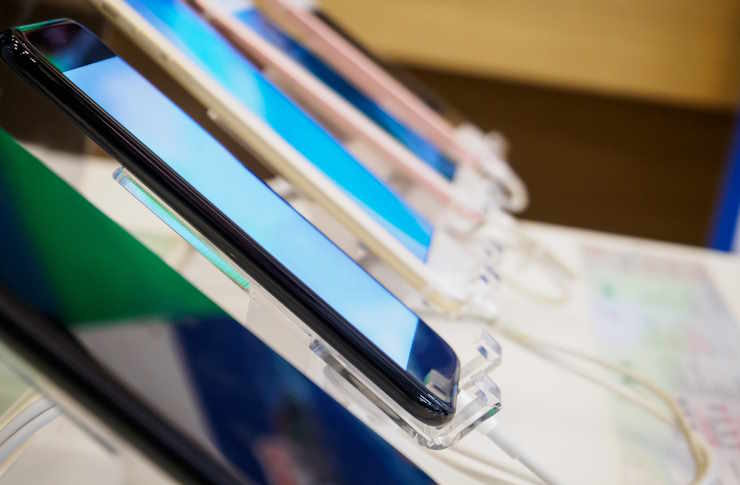Alternative Financing Solutions for Phone Buyers
Modern smartphone purchases no longer require upfront payment thanks to innovative financing solutions. Buy now, pay later options have revolutionized how consumers access the latest mobile technology, offering flexible payment plans that spread costs over manageable periods. These financing alternatives cater to various financial situations, making premium devices accessible to a broader audience while providing retailers with increased sales opportunities.

Flexible Payment Options for Smartphone Purchases
Buy now, pay later services have transformed the smartphone retail landscape by offering consumers the ability to split purchases into smaller, interest-free installments. These payment solutions typically divide the total cost into three to four equal payments spread over six to eight weeks. Major BNPL providers like Klarna, Afterpay, and Affirm have partnered with numerous electronics retailers to make this financing option widely available.
The process usually involves a simple application at checkout, with instant approval decisions based on basic financial information. Most BNPL services perform soft credit checks that don’t impact credit scores, making them accessible to consumers with limited credit history or those seeking to avoid traditional credit inquiries.
Major Retailers and Carrier Financing Programs
Major retailers and wireless carriers have integrated BNPL options into their purchasing systems, recognizing the growing demand for flexible payment solutions. Apple offers its own financing through Apple Card Monthly Installments, allowing customers to purchase iPhones with 0% APR over 24 months. Samsung provides similar financing options through Samsung Financing, offering promotional periods with deferred interest.
Wireless carriers like Verizon, AT&T, and T-Mobile have established device payment plans that spread smartphone costs over 24 to 36 months, often with 0% interest for qualified customers. These carrier-specific programs frequently include trade-in credits and promotional offers that can significantly reduce overall costs.
Online retailers such as Amazon, Best Buy, and Target have partnered with multiple BNPL providers, giving customers choice in payment terms and approval requirements. This competition among financing options has led to more favorable terms and broader accessibility for consumers.
No Credit Check Phone Financing Solutions
For consumers with limited or damaged credit histories, specialized financing companies offer smartphone access without traditional credit requirements. These no credit check options typically focus on income verification and banking history rather than credit scores, making smartphones accessible to underserved populations.
Progressive Leasing and Rent-A-Center offer lease-to-own programs where customers can obtain smartphones immediately and make weekly or monthly payments toward eventual ownership. While these programs often result in higher total costs compared to traditional financing, they provide immediate access to necessary technology for those who might otherwise be excluded from smartphone ownership.
Some prepaid carriers like Cricket Wireless and Metro by T-Mobile offer device financing programs with minimal credit requirements, focusing instead on payment history with the carrier and current account standing.
Cost Comparison and Provider Analysis
Understanding the financial implications of different financing options helps consumers make informed decisions about smartphone purchases. The following comparison illustrates typical costs and terms across various financing providers:
| Provider Type | Example Provider | Financing Terms | Typical APR | Additional Fees |
|---|---|---|---|---|
| BNPL Services | Klarna/Afterpay | 4 payments over 6-8 weeks | 0% | Late fees $7-25 |
| Carrier Financing | Verizon Device Payment | 24-36 months | 0% qualified customers | Activation fees $35-40 |
| Retail Store Cards | Best Buy Card | 6-24 months promotional | 0% promotional, 27.99% after | Annual fees vary |
| Lease-to-Own | Progressive Leasing | 12 months | N/A (lease structure) | Processing fees $49-79 |
| No Credit Programs | SmartPay Leasing | 12-18 months | N/A (lease structure) | Down payment required |
Prices, rates, or cost estimates mentioned in this article are based on the latest available information but may change over time. Independent research is advised before making financial decisions.
Qualification Requirements and Application Process
Most BNPL services require minimal qualification criteria, typically including being 18 years or older, having a valid debit or credit card, and providing a verifiable address and phone number. The application process usually takes minutes, with instant approval decisions for most applicants.
Traditional carrier financing may require credit checks and established credit history, though many carriers offer alternative approval methods for customers with limited credit. These alternatives might include larger down payments, co-signers, or security deposits.
No credit check options typically require proof of income, active checking account, and valid identification. Some providers may require references or employment verification, but the approval process generally focuses on ability to make payments rather than credit history.
Benefits and Considerations for Consumers
Flexible financing options provide immediate access to necessary technology while preserving cash flow for other expenses. These solutions particularly benefit consumers who need smartphones for work, education, or family communication but cannot afford large upfront payments.
However, consumers should carefully review terms and conditions, understanding that missed payments can result in fees, service interruption, or negative credit reporting. While many BNPL services don’t charge interest during promotional periods, late fees and potential interest charges after promotional periods can increase total costs significantly.
Successful use of smartphone financing can also help build credit history when payments are reported to credit bureaus, making these programs potentially beneficial for consumers seeking to establish or rebuild credit profiles while obtaining necessary technology.




